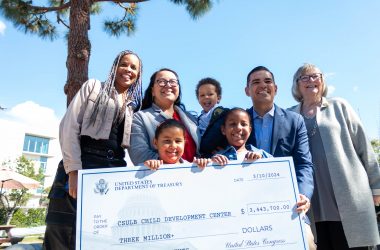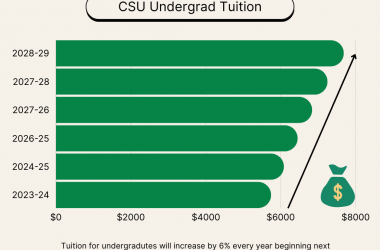Walking amid hundreds of thousands of singing and dancing Egyptian protestors was the highlight of Olfat Mohamed’s summer vacation.
What was planned as a visit to Mohamed’s mother in Cairo turned into a life-changing experience for the Egyptian-born physical therapy professor and adviser.
“It was like a carnival,” Mohamed said. “People of all ages, backgrounds and classes [were there].”
According to the BBC, widespread protests began on June 30 against former Egyptian President Mohammed Morsi. He was deposed by the military on July 3.
“People were just frustrated because they felt Morsi did not really change much from [former Egyptian President Hosni Mubarak],” Mohamed said. “They felt the [2011 Egyptian Revolution] did not fulfill their dreams.”
Mohamed, who calls herself an eyewitness rather than an expert, described the scene in Egypt as full of unrest.
“The economy was so bad,” she said. “People were just frustrated.”
When Mohamed heard about the protests, she decided to find out for herself what was going on and walked into Tahrir Square in Cairo.
“I was concerned about harassment because I heard so much in the media,” Mohamed said.
When she arrived, Mohamed said the situation was very different from what she had anticipated.
“I felt I was in the safest place in the world,” she said. “The young men were holding hands to make sure that they [could] create a passage for us to pass and stay in a women-only area.”
Mohamed described the scenes in Tahrir Square as “eye-opening.”
“People brought their children,” she said. She also said people were singing and dancing during the protests.
Mohamed said the situation and circumstances surrounding Egypt were unlike any other.
“The media is dealing with a very different scene,” Mohamed said. “They are not sure what to call it. Is it a coup? It’s hard because it doesn’t fit the textbook definition.”
Although Mohamed said most of the protests were peaceful, she was frustrated when she saw al-Qaeda flags fly in other parts of Cairo.
“For God’s sake, al-Qaeda flags were flying in Ramses Square,” she said. “If you told me this would ever happen in Egypt — I mean, how?
Mohamed saw Morsi deposed by the Egyptian while she was in the country, as she didn’t return to the U.S. until late July.
She likened the aftermath of the revolution to the growing of a plant.
“It’s like planting a seed. You can’t rush it,” she said. “You have to really take care of it and wait. It will take time.”
When Mohamed returned to Cal State Long Beach, she said her summer experience had a profound effect on the way she viewed the world.
“It really opened my eyes. The power of hope and determination of the people is really what I remember,” she said. “The young people, the old people, the people who want to really change their reality — it’s so powerful.”



